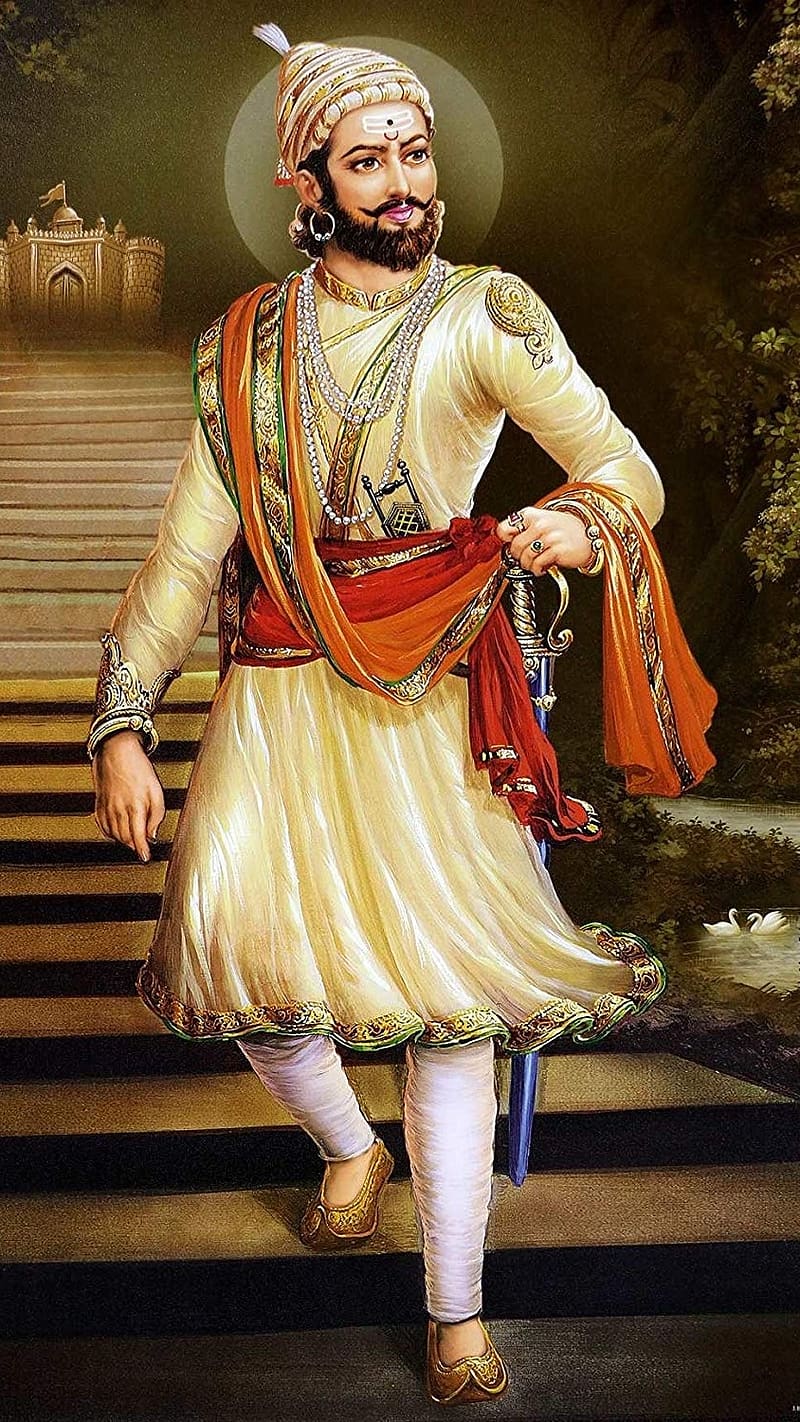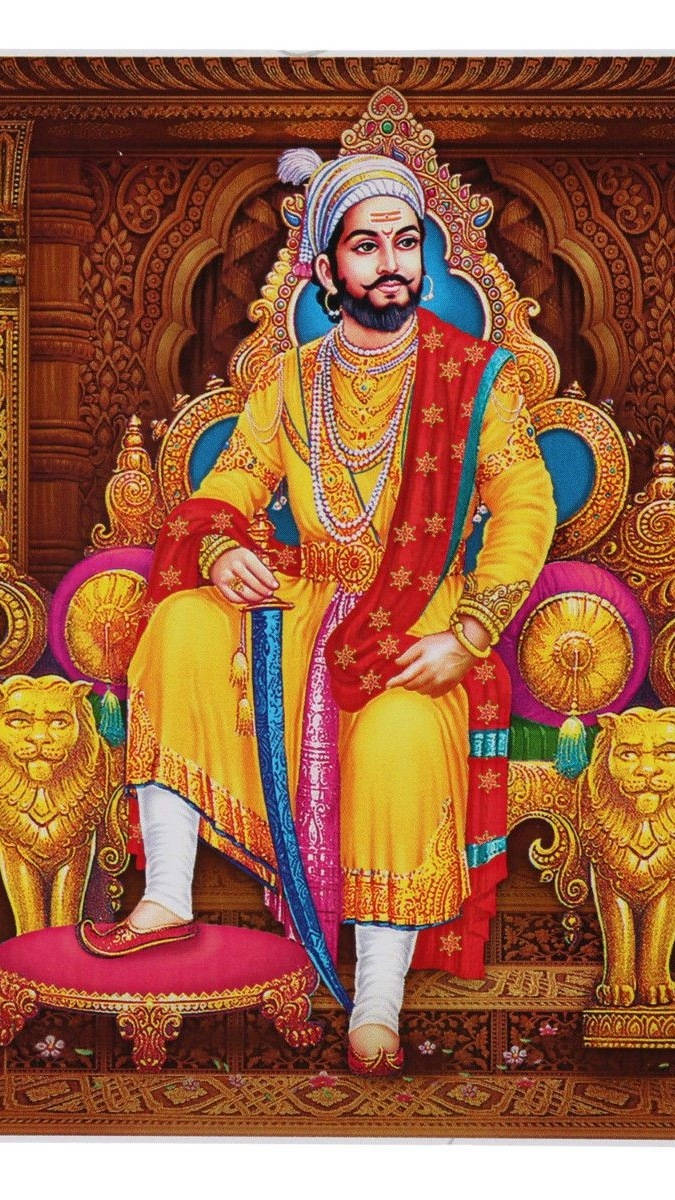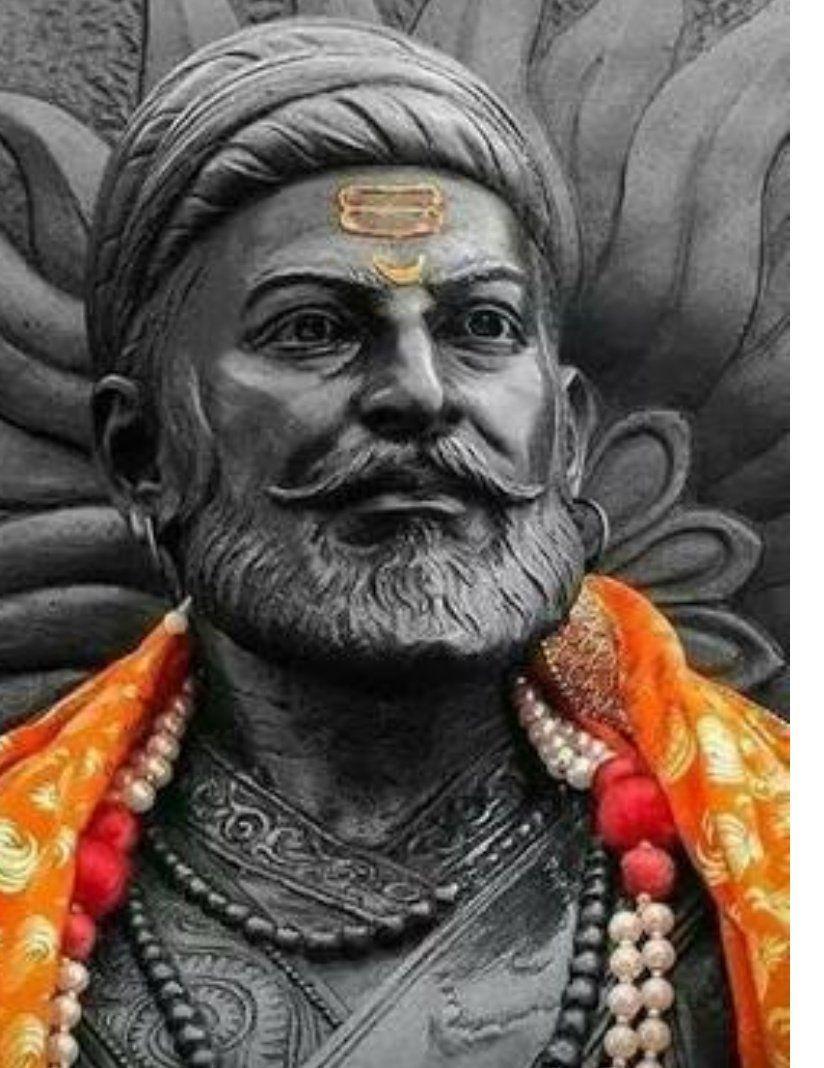Chhatrapati Shivaji Maharaj: Architect Of A Powerful Maratha Empire
Table of Contents
- The Early Life and Formative Years of Shivaji Maharaj
- The Genesis of the Maratha Empire
- The Coronation: Chhatrapati Shivaji Maharaj
- A Just and Inclusive Kingdom: Shivaji's Administration
- Battles and Resistance Against Mughal Rule
- The Enduring Legacy of Chhatrapati Shivaji Maharaj
- Personal Information: A Glimpse into the Life of Shivaji Maharaj
- Shivaji as an Empire and Nation Builder
- The Spiritual and Moral Compass of Shivaji Maharaj
The Early Life and Formative Years of Shivaji Maharaj
The foundations of greatness are often laid in childhood, shaped by the environment, mentors, and the challenges faced. For Chhatrapati Shivaji Maharaj, his early years were instrumental in forging the character of a future king and nation-builder.Birth and Childhood Influences
Chhatrapati Shivaji Maharaj was born on February 19, 1630, at the Shivneri Fort near Junnar, Pune district, Maharashtra. (While some historical accounts mention 1627, the 1630 date is widely accepted and celebrated, with India commemorating his 395th birth anniversary on February 19, 2025, based on this date.) He was the youngest son of Shahji Bhosale, a prominent military officer who served the states of Ahmadnagar, Deccan, and Bijapur, and Jijabai, a woman of immense strength and piety. Shivaji's early childhood saw little direct interaction with his father, Shahji, who was often occupied with his Karnatak campaign as a Bijapur noble from 1630 to 1636. This period, however, was crucial as it was under the able guidance of his mother, Jijabai, and his father's administrator, Dadoji Konddeo, that Shivaji received his foundational upbringing. Jijabai instilled in him values of dharma, justice, and pride in his heritage, narrating tales of valor from the Hindu epics. Dadoji Konddeo, on the other hand, provided him with rigorous military training in various fighting techniques, shaping him into a brave and powerful warrior. This dual influence – spiritual and martial – proved pivotal in his development.Early Challenges and Political Landscape
The 17th century Deccan was a cauldron of political instability. The region was dominated by powerful Sultanates – Bijapur, Golconda, and Ahmadnagar – constantly vying for supremacy, often under the looming shadow of the mighty Mughal Empire to the north. This fragmented political landscape presented both immense challenges and unique opportunities for an ambitious leader. Shivaji Maharaj grew up witnessing the exploitation of the local populace, the constant warfare, and the general lack of a unified vision among the regional powers. These observations fueled his desire to create an independent state where justice and the welfare of the people would be paramount. His early experiences, combined with his inherent leadership qualities, laid the groundwork for his future endeavors to establish a sovereign kingdom, free from the dictates of the existing Muslim rulers.The Genesis of the Maratha Empire
The establishment of the Maratha Empire was not an overnight phenomenon but a meticulously planned and bravely executed process, spearheaded by the strategic genius of Chhatrapati Shivaji Maharaj.Carving an Independent Kingdom
Shivaji carved out his own independent kingdom from the Sultanate of Bijapur, a daring move that marked the genesis of the Maratha Empire. This wasn't achieved through inherited power, but through sheer will, strategic brilliance, and an uncanny ability to rally people around a cause. Unlike other rulers of his time, he wasn't born into royalty; as some historians note, he was one of the few kings in history, besides Chandragupta, who wasn't born as a king. His rise was a testament to his charismatic personality and his ability to seize opportunities that others overlooked. He began by capturing strategic forts in the Sahyadri hills, gradually expanding his control over the surrounding regions. These early conquests were not just about territorial gain but about establishing a secure base from which to operate and project power. His vision was clear: to create a sovereign Hindu kingdom that would protect its people and uphold its cultural values.Military Strategies and Tactical Brilliance
Chhatrapati Shivaji Maharaj is renowned for his brilliant military strategies, which allowed him to defeat numerically superior and better-equipped adversaries. He mastered the art of guerrilla warfare, utilizing the rugged terrain of the Western Ghats to his advantage. His tactics included swift raids, ambushes, and lightning-fast movements, disorienting and demoralizing his opponents. He understood the importance of intelligence gathering and employed a vast network of spies. His military administration was highly organized, focusing on discipline, meritocracy, and loyalty. He built a strong navy to protect his coastal territories and trade routes, a foresight that was rare among land-based powers of his era. His famous encounters, such as the Battle of Pratapgad against Afzal Khan and the raid on Shaista Khan's camp, showcase his audacious planning and execution, solidifying his reputation as a legendary Indian warrior king.The Coronation: Chhatrapati Shivaji Maharaj
The year 1674 marked a pivotal moment in the life of Shivaji Maharaj and the history of the Maratha Empire. In a grand ceremony held at Raigad Fort, he was formally crowned the Chhatrapati (Emperor) of his realm. This coronation was not merely a ceremonial event; it was a profound political statement. By declaring himself Chhatrapati, Shivaji asserted his sovereignty and legitimacy, challenging the Mughal emperor's claim to paramountcy over the Deccan. It signified the establishment of a fully independent Hindu kingdom, free from the suzerainty of any other power. He reigned as its king from 1674 until his death in 1680. The coronation cemented his status as a visionary and influential leader, giving a formal identity and legal framework to the state he had painstakingly built.A Just and Inclusive Kingdom: Shivaji's Administration
Beyond his military prowess, Chhatrapati Shivaji Maharaj was an exceptional administrator known for his commitment to social justice and religious toleration. His kingdom’s security was based on these principles, fostering a functional integration of Brahmans, Marathas, and Prabhus, among other communities. He implemented administrative reforms that were ahead of his time. His revenue system was fair and equitable, directly collecting taxes from farmers to prevent exploitation by intermediaries. He abolished the Jagirdari system, which often led to feudal exploitation, and instead paid his officers in cash. His army was disciplined and prohibited from looting civilians or desecrating religious places, even those of his enemies. Shivaji Maharaj actively promoted religious tolerance. While establishing a Hindu kingdom, he respected all faiths and employed capable individuals regardless of their religious background. His policies ensured the protection of mosques and Sufi shrines, and he famously honored the Quran. This inclusive approach not only strengthened his kingdom internally but also showcased his enlightened leadership.Battles and Resistance Against Mughal Rule
The rise of Chhatrapati Shivaji Maharaj inevitably brought him into direct conflict with the mighty Mughal Empire, led by Emperor Aurangzeb. Shivaji's independent kingdom posed a direct challenge to Mughal hegemony in the Deccan. He fought numerous battles against Muslim rulers, primarily the Mughals and the Bijapur Sultanate. These conflicts were characterized by Shivaji's strategic brilliance and the unwavering loyalty of his Maratha forces. Major battles and skirmishes, such as the siege of Purandar, the escape from Agra, and various confrontations with Mughal generals like Jai Singh, shaped the course of the Maratha Empire. Shivaji's resistance was not merely military; it was a cultural and political assertion. He inspired a sense of Maratha identity and pride, rallying people to defend their land and way of life against external domination. His ability to resist and even defeat the formidable Mughal forces made him a legendary figure and cemented his place as a symbol of defiance and self-rule.The Enduring Legacy of Chhatrapati Shivaji Maharaj
Chhatrapati Shivaji Maharaj's influence extends far beyond his lifetime. He is widely regarded as the founder of the Maratha Empire, a powerful Hindu kingdom that challenged Mughal rule in India and significantly shaped the course of Indian history. His legacy is multifaceted, encompassing military innovation, administrative excellence, and a vision for a just society. His principles of governance, particularly his emphasis on religious toleration, fair administration, and the welfare of his subjects, served as a blueprint for future Maratha rulers. He demonstrated that it was possible to establish a powerful and stable kingdom based on indigenous values and effective administration, rather than relying solely on military might. Even today, Shivaji Maharaj remains one of the most admired leaders in Indian history for his bravery, military strategies, and remarkable leadership. He is a source of immense pride and inspiration, particularly in Maharashtra, where his birth anniversary, February 19, is celebrated with great fervor. His life and achievements continue to be studied, explored, and revered, symbolizing courage, valor, and an indomitable spirit.Personal Information: A Glimpse into the Life of Shivaji Maharaj
To truly appreciate the life and achievements of Chhatrapati Shivaji Maharaj, it's helpful to look at some key personal details that shaped his journey.| Attribute | Detail |
|---|---|
| Full Name | Shivaji Shahaji Bhosale (Shivaji I) |
| Marathi Pronunciation | [ʃiʋaːd͡ʒi bʱoːs(ə)le] |
| Date of Birth | February 19, 1630 (Widely accepted and celebrated) |
| Place of Birth | Shivneri Fort, Junnar, Pune District, Maharashtra |
| Father | Shahaji Bhosale |
| Mother | Jijabai |
| Reign as Chhatrapati | 1674 – 1680 |
| Coronation Date | 1674 |
| Coronation Place | Raigad Fort |
| Known For | Founder of the Maratha Empire, Legendary Warrior King, Administrative Reforms, Religious Tolerance |
| Spiritual Teachers | Various sources mention spiritual influences, including Samarth Ramdas (though the extent of direct discipleship is debated by historians, his spiritual guidance is acknowledged). |
Shivaji as an Empire and Nation Builder
The transformation of a disparate collection of local chieftains and fragmented territories into a cohesive and powerful Maratha Empire was the singular achievement of Chhatrapati Shivaji Maharaj. While several circumstances are often cited as responsible for the rise of Shivaji and his building a strong nation and an empire, the fact remains that it was his charismatic personality that was primarily responsible for his phenomenal achievement. Circumstances, in fact, already existed – a weakening Bijapur Sultanate, the distant and often ineffective Mughal control over the Deccan, and a populace yearning for stable governance. However, nobody before Shivaji truly tried to make use of these conditions effectively. It was Shivaji who took the initiative, demonstrating unparalleled vision and leadership. He didn't just conquer lands; he built institutions, fostered a sense of shared identity, and created a system of governance that endured. His efforts transcended mere military victories, laying the groundwork for a lasting political entity and a distinct Maratha national consciousness. He truly was an empire and nation builder in the truest sense.The Spiritual and Moral Compass of Shivaji Maharaj
Beyond his military and administrative genius, Chhatrapati Shivaji Maharaj was deeply influenced by spiritual and moral principles. His mother, Jijabai, played a crucial role in instilling in him a strong sense of dharma and justice. She introduced him to the stories of the Ramayana and Mahabharata, which provided a moral framework for his actions. While historical debates exist regarding the exact nature of his relationship with specific spiritual teachers like Samarth Ramdas, it is widely acknowledged that Shivaji Maharaj drew inspiration from the Bhakti movement and the teachings of various saints. This spiritual grounding informed his policies, particularly his commitment to religious toleration and his just treatment of all subjects, irrespective of their faith. His reign was characterized by a deep respect for women, religious sites, and the welfare of the common people, reflecting a moral compass guided by principles of righteousness and compassion. This spiritual dimension undoubtedly contributed to his standing as a truly exceptional and revered historical figure.Conclusion
Chhatrapati Shivaji Maharaj stands as one of the most visionary and influential leaders in Indian history. His life, from his birth at Shivneri Fort to his coronation as Chhatrapati at Raigad, is a compelling narrative of courage, strategic brilliance, and an unwavering commitment to establishing a just and independent kingdom. He not only founded the Maratha Empire but also laid down principles of governance, military strategy, and social justice that were far ahead of his time. His legacy as a legendary Indian warrior king who challenged Mughal domination and shaped the course of Indian history remains profound. His story is a powerful reminder that true leadership stems not just from power, but from vision, integrity, and the ability to inspire and unite people for a common cause. As we continue to learn about the life and achievements of Chhatrapati Shivaji Maharaj, his contributions serve as a beacon of inspiration. What aspects of Shivaji Maharaj's life or administration do you find most inspiring? Share your thoughts in the comments below! If you found this comprehensive article insightful, consider sharing it with others who might be interested in the rich history of India. Explore more articles on our site to delve deeper into the lives of other historical figures and their impact.- Arias Agencies Lawsuit
- Andros Taverna
- Travel Town Free Energy
- Gavin Casalegno Movies And Tv Shows
- Dante Beverly Hills

Photos Of Chhatrapati Shivaji Maharaj - Infoupdate.org

Download Chhatrapati Shivaji Maharaj Sitting On Throne Wallpaper

Shivaji Maharaj HD Wallpapers - Top Những Hình Ảnh Đẹp